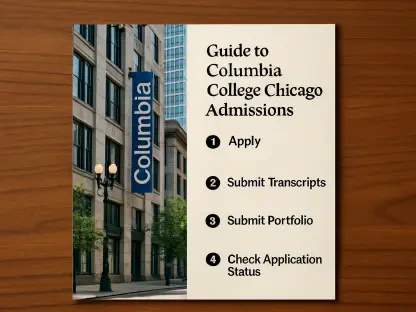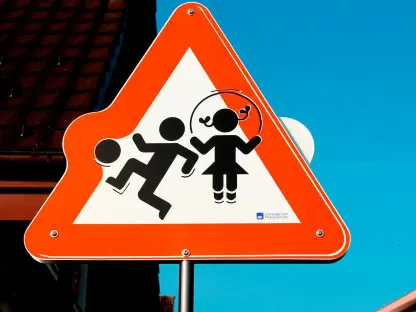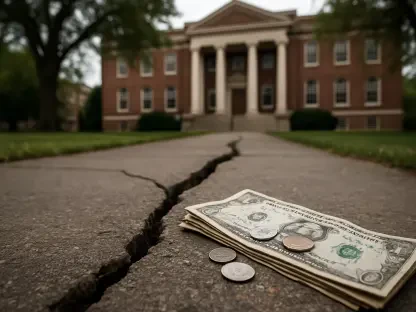I’m thrilled to sit down with Camille Faivre, a renowned expert in education management who has been at the forefront of guiding institutions through the evolving landscape of open and e-learning programs in the post-pandemic era. With her deep insights into the intersection of higher education policy and regulatory challenges, Camille is the perfect person to unpack the recent developments surrounding the Federal Trade Commission’s decision to drop its lawsuit against Grand Canyon Education. Today, we’ll dive into the complexities of this case, exploring issues like nonprofit status in higher education, the financial burdens on students, and the broader implications of government oversight in the sector.
Can you start by walking us through the core issues behind the FTC’s lawsuit against Grand Canyon Education?
Absolutely, Javier. The FTC’s lawsuit, filed in late 2023, primarily targeted Grand Canyon Education, or GCE, which provides services to Grand Canyon University. The agency accused GCE of misleading students, especially about the costs of doctoral programs at the university. They argued that students were not properly informed about the need for additional continuation courses, which significantly increased both the time and money required to complete their degrees. Beyond that, the FTC questioned whether Grand Canyon University was genuinely operating as a nonprofit, suggesting that its close ties with GCE—a for-profit entity—benefited shareholders more than students. It was a complex case touching on consumer protection and institutional accountability.
Why do you think the nonprofit status of Grand Canyon University became such a focal point in this litigation?
The nonprofit status issue was central because it strikes at the heart of how we define and regulate educational institutions. The FTC, along with the U.S. Department of Education, raised concerns after the university spun off from GCE in 2018, becoming a nonprofit while still relying heavily on GCE for critical services like curriculum and financial aid management. Critics pointed out that GCE received a hefty 60% of the university’s tuition and fee revenue without clear limits or proportionality to their costs. This arrangement led to skepticism about whether the university was truly prioritizing students over profits. Ultimately, though, a federal judge ruled that as a nonprofit, the university fell outside the FTC’s jurisdiction, and the IRS later affirmed its status, which shifted the case’s direction.
Let’s talk about the doctoral program costs that were a big part of the FTC’s allegations. How did these issues impact students?
The FTC highlighted a really troubling pattern with the doctoral programs at Grand Canyon University. They claimed that many students were blindsided by the need for continuation courses to meet dissertation requirements, which weren’t clearly disclosed upfront. This meant students often spent thousands more in tuition and years longer than they expected to finish their degrees. The agency pointed out that some couldn’t afford to continue and ended up dropping out, losing both time and money. It’s a stark reminder of how transparency—or the lack of it—around program costs can have a profound effect on students’ lives and trust in educational institutions.
The FTC recently decided to drop the lawsuit. What do you think drove that decision?
The FTC’s decision to drop the case came down to a combination of legal setbacks and strategic considerations. They faced significant court rulings against them, including a federal judge dismissing claims against Grand Canyon University due to its nonprofit status. Additionally, the Trump administration’s move to roll back a substantial fine by the Department of Education against the university—related to similar misleading cost claims—weakened their position. The FTC commissioners, in a unanimous 3-0 vote, essentially said that continuing the litigation offered little benefit to consumers compared to the resources it would consume. It’s a pragmatic, if somewhat controversial, call given the case’s reduced scope after these developments.
Grand Canyon University described this lawsuit as part of a ‘coordinated lawfare’ by the Biden administration. How do you interpret that claim?
When Grand Canyon University used the term ‘coordinated lawfare,’ they were suggesting that the Biden administration, through agencies like the FTC and the Department of Education, was deliberately targeting them with legal actions as a form of harassment or political pressure. They’ve framed themselves as the largest Christian university in the country being singled out, which implies a broader agenda at play. Whether there’s concrete evidence of such coordination is debatable—it’s hard to separate policy disagreements from personal or political motivations in cases like this. Their response to the lawsuit being dropped was one of vindication, celebrating the end of what they saw as unjust scrutiny, which shows how deeply they felt under attack.
The FTC commissioners mentioned that pursuing the case further wasn’t worth the cost. What’s your take on that reasoning?
I think the commissioners’ reasoning reflects a hard look at resource allocation and impact. They argued that, given the court rulings and other agencies stepping back—like the Education Department rescinding its fine—the case no longer promised significant consumer benefits relative to the effort and expense of continuing. It’s a valid perspective if you view litigation through a cost-benefit lens, especially for an agency with limited resources and competing priorities. However, it also raises questions about whether dropping cases like this might embolden other institutions to push boundaries on transparency or financial practices, knowing that enforcement might not always follow through. It’s a delicate balance for the FTC under any administration.
Looking at the bigger picture, how do you see the interplay between different government agencies in regulating higher education institutions based on this case?
This case really illustrates the fragmented and sometimes contradictory nature of federal oversight in higher education. You’ve got the FTC focusing on consumer protection, the Department of Education handling financial aid and institutional standards, and even the IRS weighing in on tax-exempt status. Here, we saw the Education Department initially impose a hefty fine, only to later retract it, while the FTC pushed forward until court rulings and political shifts changed the landscape. It’s clear that without better coordination or clearer jurisdictional boundaries, institutions like Grand Canyon University can get caught in a web of overlapping scrutiny—or slip through the cracks. It underscores the need for a more unified approach to ensure both accountability and fairness.
What is your forecast for how cases like this might shape the future of regulatory oversight in higher education?
I believe cases like this one with Grand Canyon Education will push regulators and policymakers to rethink how they approach oversight, especially for institutions with complex for-profit and nonprofit relationships. We might see more precise guidelines on what constitutes a nonprofit in education, as well as stricter rules on cost transparency for students. At the same time, the political dimension—evident in the differing actions under the Biden and Trump administrations—suggests that regulatory priorities could swing dramatically with each election cycle. My forecast is that we’ll see ongoing tension between protecting students and avoiding overreach, with agencies like the FTC potentially becoming more selective in the battles they choose to fight. It’s a space to watch closely as hybrid education models and online programs continue to grow.









